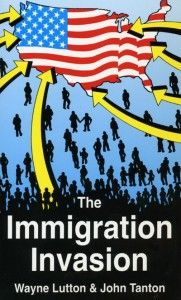Why minorities are cold to green agenda: what Politico missed
Dec. 31, 2012
By Chris Reed
Politico reporter Talia Buford had a weekend analysis piece about the environmental movement’s theories on why its sweeping proposals haven’t advanced in Washington. The main thesis:

“The green movement dreams of pushing major bills through Congress on the scale of President Barack Obama’s health care reform law and the immigration overhaul expected to begin next year.
“But those issues enjoy something the green movement does not: wide and deep support across key Democratic groups, including Latinos and African-Americans. …
“The greens say their plight is less dire than the GOP’s, insisting that diversity exists in environmentalism, especially at the local level. It’s nationally that environmental organizations — and the face they present to the country — too often drive the perception that green issues are the purview of white liberals.”
Politico deserves credit for noting the fact that leaders of major U.S. environmental groups are whiter than a New Hampshire country club, reflecting their elitist values and wealth. But Buford doesn’t bring up any of the many other obvious factors on why greens and minorities aren’t bosom buddies. The short list:
No. 1: The environmental movement for decades called for zero population growth — seen as code for making minorities have fewer kids and for curbing illegal immigration. Now the rhetoric has shifted, but the history isn’t going away. Check out this Southern Poverty Law Center dossier on John Tanton, a Sierra Club activist who led’s the club’s population committee in the early 1970s before it was revealed that he was a white nationalist.
No. 2: Greens have a long history of being more worried about the environment when a particular problem affects their upper-class and middle-class neighborhoods than when it bothers poor people. “Environmental racism” — the concentration of polluters in poor neighborhoods — did not emerge in many American metropolitan areas on Republicans’ watch. The issue was raised by minority leaders in hard-hit neighborhoods, not by affluent white greens. This academic analysis notes, for example, the prevalance of “environmental racism” in Baltimore and Richmond, Calif. — not hotbeds of GOP strength.
No. 3: Pocketbook issues — starting with, “do I have a job?” — matter far more to hard-hit minorities than green crusaders. This is why Sacramento’s most passionate greens have always been white Democrats from the Bay Area and West L.A. Its most pro-private sector Democrats are often minorities, such as Lou Correa and Cullen Price.
No. 4: Environmental policies that emphasize mass transit sound good. But in many cities, mass transit means subsidized light rail helping affluent suburbanites — not buses that are so much cheaper and more flexible and what working-class people need. Light-rail is a green fantasy, not one held by the poor. There are some ugly race/class issues just beneath the surface here, too.
Pretty weak that Politico ignores all these obvious factors. But what’s amazing is that it also leaves out something that it has previously reported: what killed cap-and-trade isn’t a lack of minority support. It’s that support for cap-and-trade among Democratic lawmakers is spotty everywhere except on the coasts. Many inland lawmakers see the obvious — the rest of the world isn’t switching to cleaner-but-costlier energy, so how is it a good thing for the U.S. to do so and impose unique costs on its businesses and citizens?
Not everyone is ready to go the martyr route, as California chose to do by passing AB 32.
This hasn’t been a good year for Politico. Forecaster savant Nate Silver has used his victory tour to mock the politics site for treating elections like sporting events.
But articles like this one that leave out so many obvious angles reinforce another theory a lot of people have about not just Politico but many political websites that have gotten off to flashy starts: They still aren’t as good as they should be. Institutional memory matters.
After all, it wasn’t 1974 that the N.Y. Times reported that many Sierra Club leaders wanted to shut down the borders to keep out unwanted Mexicans. It was 2004.
Related Articles
California Democrats tar opponents with Trump
California Democrats have centered around a handful of Republican challengers they hope to tar with Donald Trump’s brush. Assemblymen Dante
Chris Reed and Mark Cabaniss on Gadfly Radio
Oct. 2, 2012 By John Seiler Martha Montelongo’s great Gadfly Radio today featured two special gusts. Chris Reed, our special
Steinberg To Debate 20-Year-Old Foe
OCT. 19, 2010 By KATY GRIMES In this election cycle, there are many new faces as well as underdog candidates.



